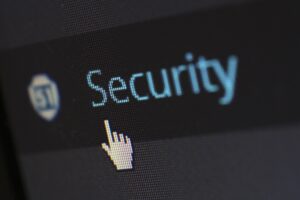
The Importance of AI Security
Artificial intelligence (AI) is changing the world for the better in many ways. It can help us do things faster, easier, and smarter. But AI also comes with some challenges and risks for security. We need to make sure that AI is safe, reliable, fair, and accountable. In this blog post, we will explain why AI security matters, and what we can do to achieve it.
What does AI security mean?
AI security means making sure that AI systems work as they should, and don’t cause any harm or trouble. AI security covers many aspects, such as:
Transparency and explain ability
We need to understand how AI systems work and what they do. We need to be able to check, correct, or question AI systems when they make decisions that affect us or others.
Trust and confidence
We need to trust that AI systems will do what they are supposed to do, and not what they are not supposed to do. We need to be careful not to rely too much on AI systems without human input or oversight.
Fairness and equality
We need to make sure that AI systems don’t discriminate or favor certain people or groups over others. We need to make sure that AI systems respect our rights and values.
Security and resilience
We need to protect AI systems from attacks or threats that could damage or misuse them. We need to make sure that AI systems can handle errors, failures, or changes without breaking down or behaving badly.
Responsibility and accountability
We need to know who is responsible for the actions and outcomes of AI systems. We need to have rules and laws that govern the use and development of AI systems.
How can we achieve AI security?
AI security is a big and complicated challenge that needs cooperation and coordination from many people and organizations. Some of the things we can do to achieve AI security include:
Building secure AI
This means following security principles and standards when we create and use AI systems. For example, using good coding practices, testing and verifying AI systems for quality and safety, protecting data privacy and security, following ethical guidelines and frameworks for AI development.
Checking and evaluating AI
This means monitoring and measuring the performance and behavior of AI systems in real situations. For example, using logs and reports, doing regular audits and reviews of AI systems for compliance and accountability purposes.
Learning and informing about AI
This means increasing awareness and knowledge of the benefits and risks of AI among users and society in general. For example, providing clear and simple information about how AI works and what it can (or cannot) do, offering training and advice on how to use AI safely and responsibly.
Regulating and governing AI
This means making and enforcing rules and norms for the development and use of AI that match the values and interests of society. For example, creating laws and policies that protect human rights and dignity in relation to AI applications.
Summary
AI security is essential for ensuring that AI is a positive force for humanity rather than a negative one. By following the things we mentioned above, we can create a culture of trustworthiness and responsibility around AI development and use. We can also use the opportunities that AI offers for improving our security capabilities against various challenges such as cyberattacks or natural disasters.






Leave a Reply